- Home
- Jess Walter
The Cold Millions Page 3
The Cold Millions Read online
Page 3
The blow caught the big man with a sideways stroke across his thick jowl, Slate Hair’s jaw cracking like dry sticks under boots, Rye nearly retching at the sound, almost sorry for the big man. Men on both sides took a step back, as natural as a shotgun’s recoil, Slate Hair staggering, the thin man swinging again.
And down went Slate Hair.
One of the civilians ran at the thin man, but Gig caught him square in the chest with a thick shoulder and the man went sprawling onto the dirt, scrambled to his feet, turned, and ran. Seeing one man flee was contagious, and the other four ran up the hill for help as Slate Hair scratched at the ground for his teeth.
Gig, Rye, and the other two turned and ran the opposite direction down the trail, and were a quarter mile away before Gig paused to ask the thin man his name.
“Early Reston,” he said.
“Well, Early Reston, I’m Gregory Dolan, and while I appreciate what you did back there, as long as you’re traveling with us, I’d ask that you abide the IWW’s code of nonviolence.”
“Nonviolence?” Reston stopped and gave a winking half-smile. “When a mob intends to throw you in a river?”
“Especially then,” Gig said.
Reston laughed—a rusty sound like an old gate swinging open. “Good God,” he said, and tossed the club he’d been carrying. “I’ve fallen in with idealists.”
3
“You think a tramp killed that policeman?” Rye asked as they circled back along the river trail toward town. They were moving quickly, in case the mob re-formed—single file, Gig in front, then Early, Rye, and Jules.
“Not a chance,” Gig said.
Early Reston agreed: “If a bum did it, they wouldn’t wait a day to raid the camp.”
Jules said, “And they’d come with more than sticks.”
“Then what’s it mean,” Rye said, “them rousting us like that?”
“Means the bosses know we plan to shake off the yoke of slavery,” said Gig in his jawsmithing voice. “To wit, they aim to lay us low before Monday.”
Early laughed. “To what now?”
Gig said Monday was the IWW’s Free Speech Day. And that the police were hoping to intimidate them into not doing it. “You should stick around,” he told Early.
“And give those cops another shot? I don’t think so.”
“Well, that might be for the best anyway,” Gig said, “if you can’t refrain from that kind of thing back there.”
“Oh, I can refrain from having men throw me in a river.”
Gig smiled. “I meant your reaction.”
“I know what you meant.” Early covered his eyes against the sun. “So, Gregory Dolan, are you a big man for these Wobblies?”
“Nah.” Gig seemed both embarrassed and pleased at being taken for a union leader. He was on the free speech committee, he said, but was not an elected officer. “I simply share the belief that since all wealth comes from labor, labor ought to share in the wealth it produces and not merely be its fuel—”
Early Reston grinned. “And do you have opinions that John Locke didn’t write first?”
“Maybe.” Gig stopped and could barely contain his own smile. “Tell me, what kind of student of bum economics are you?”
So Early Reston told his whole story: he grew up in Shelbyville, Illinois, studied mining engineering at Purdue College, and went to work on the front range of the Rockies, where he met and married a Colorado City girl. Though not a union man himself, he walked out in sympathy with the Western Federation of Miners’ strike in ’03. When the National Guard was sent in, he was arrested with the strikers and spent three weeks in a detention camp. Released, he went home to find his pregnant wife dead on the kitchen floor, “our stillborn son half out of her.”
They walked quietly along the river trail awhile.
“That is why,” Early said, “Gregory Dolan of the Irrational Workers of the World, I tend to take a harder view of these things. Doesn’t matter how good your speeches are, if someone comes to knock Early Reston, he’s gonna get knocked back.”
It seemed to Rye that his brother usually had a famous saying at the ready, and as they moved down the trail, he went with an old favorite: “Whoever fights monsters should see to it that in the process he does not become a monster.”
Early Reston squinted as they walked, the same grin on his face. “Well, go on, you well-read son of a bitch, don’t stop there.”
“For if you gaze long enough into an abyss—”
“The abyss gazes back,” Early said. “And that’s me, friend. The abyss smiling back.”
Rye had never seen anyone compete with Gig in the quoting of famous men. This Early Reston was like Gig meeting his match and his best friend at the same time, and they went back and forth about this fella Nitchee, or that one Marks, or some guy Russo, who Early said believed that “liberty with danger is preferable to peace with slavery.”
“Tommy Russo?” Rye tossed in from behind, thinking of a young Italian they’d picked apples alongside.
“Jean-Jacques Rousseau,” said Gig over his shoulder, less to educate Rye than to show off for his new friend. “His Discourse on Inequality is basically the Wobbly pitch after a bath and a glass of port.”
This caused even Jules to laugh, and Rye felt left out, as he often did when Gig broke out the union talk. He’d been listening to this Wobbly pitch for almost a year, but he’d never been entirely sold. Carpenter, millwright, machinist—plenty of unions Rye could see them joining for steady work and a slice of the pie, but the IWW seemed more tramp church than true labor outfit to him. Gig said this was “small thinking” on Rye’s part. “This is about more than you and me making enough to buy some vacant lot, Rye-boy. It’s about equality. It’s about the worker owning the means of production.”
That seemed awfully unlikely to Rye—like a beggar hungry for bread getting the whole bakery. And the idea that you could make men equal just by saying it? Hell, it took only your first day in a Montana flop or standing over your mother’s unmarked grave to know that equal was the one thing all men were not. A few lived like kings, and the rest hugged the dirt until it cracked open and took them home.
On the trail in front, Early Reston was making a similar point. “To my way of thinking, your one big union goes against human nature and human history.”
“But it is history,” said Gig, “the coming revolution of the working class.”
Early turned back and winked at Jules and Rye. “I think you and I had different history books.”
Then Gig smiled back at his little brother, too, as if to say, Ain’t this grand? And it was grand, thought Rye. He imagined everyone had a picture in mind of the word America—flags or eagles or George Washington’s wig—but from that moment on, he thought he’d imagine waking on a ball field with his brother, fighting off a mob, then marching into town in a moving debate of economics and justice.
“What do you think, Jules?” Rye asked.
They had fallen back a few steps, the old man glancing over the hillside at the mouth of a stream. Hangman Creek ran through the farm near Rockford where they’d worked together, and Jules had told Rye how it came to be named fifty years earlier, when the valley was filled with nothing but Indian villages. During the Coeur d’Alene War, a Cavalry colonel named George Wright rode along the Spokane River, destroying every village and food cache he found. He also captured eight hundred horses, the full measure of the tribes’ wealth. Twelve miles upriver, Wright ordered them shot. At first, they led each animal out separately and put a bullet in its head, but realizing this could take days, Wright had the soldiers fire directly into the herd, ponies falling in heaps, eight hundred wailing horses shot dead while the Spokanes watched from the foothills. After that, missionaries guaranteed the safety of any chief who would talk peace with Wright, but each time one rode into camp he was arrested. And when a Yakama brave named Qualchan came to plea for his father’s release, he and his party were immediately hanged.
In Rockfo
rd, Jules told Rye the story of these two places, the Horse Slaughter Camp on the east end of town and Hangman Creek to the southwest. He called them Père Blanc et Mère Blanche, and even though it was French, Rye didn’t need a translation: In a city named for the people driven from it, everything called civilization was born of those two parents.
“Jules?” Rye said again. “You got thoughts on this union business?”
Jules looked up from the stream as they climbed the hill. “When I was a boy,” he said, “before any of this, I worked upriver for the old French ferryman, Plante, at the only crossing for a hundred miles. This was after Wright raided our village, and my mother begged Plante to take me on so she’d have one less child to feed. I had a trapper grandfather on my father’s side, so Plante agreed. He taught me French and English and was the one called me Jules. I slept in a shed behind his cabin and cleaned horseshit off the ferry decks and cleared brush from the shore. I worked for Plante from my sixth year until my fifteenth and was never paid a dime, but I was fed and given a place to sleep.”
Just ahead of them, Gig and Early turned a switchback.
“One day,” Jules said, “two men rode up on the far shore. I roped the barge over and loaded the men and their horses. But they were outlaws, and when we got halfway across the river, they threw me off, cut the cable, and stole the barge. I swam to shore and woke Plante, and he and I tracked the barge downriver, but one of them rode it right over the falls. And when we got back to camp, Plante beat me for losing his ferry.”
In Rockford, Rye had heard Jules answer questions this way, with winding stories that tailed off before their conclusion. He wasn’t sure if it was the Salish way or the French way or Jules’s way, but he suspected the story’s meaning was like an undercurrent beneath the surface, the opposite of how Gig and his union friends told stories, skipping the story part to go straight to collectivism or syndicalism. Jules seemed to want Rye to figure out the ism himself.
Finally, Rye could wait no longer. “What’s it mean, Jules?”
Jules gave a laugh. “Un homme dans un bateau.”
“Come on,” Rye said, “you know I don’t speak nothing but English.”
“One man to a boat,” Jules said. “We all go over alone.”
They broke over a rise then, and caught up with Gig and Early, the four of them moving toward the stout brick skyline of that smoke-capped city.
4
There was no place like it then, Spokane—such hell and hair on that town. A full day’s ride from anywhere, isolated between mountain ranges on the stair-step deck of waterfalls, it took Rye’s breath away the first time he railed in: basalt cliffs jutting like teeth from pine-covered hills, train bridges latticing the valley, and in the center that big river, which carved a steep, tree-lined canyon that led from the silver mines and forested mountains of Idaho to rich Washington farmland.
It was a boomtown that just kept booming, doubling in size every six years, going from a few hundred to a hundred-some thousand in just thirty years, until the only place bigger in the state was that ugly harbor blight Seattle. Spokane felt like the intersection of Frontier and Civilized, the final gasp of a thing before it turned into something else—the Last Rush Town, Gig called it, for the silver rushes in the foothills, but also the rush of railroad and bank, school and merchant, brick, stone, and steel, old-growth timber turned to pillared houses, hammers popping nonstop against the wild, a mad rush to log and pave the whole world.
Downtown, the money turned west at Howard Street, to banks, clothiers, clubs, law offices, and gilded hotels, Louis Davenport’s fine restaurant and the Hall of Doges, the marbled Spokane Club, bricked roads leading to grand neighborhoods of mining and timber barons and the men who banked and doctored and lawyered them.
The eastern half of downtown was all skid and tenderloin, six blocks by six blocks of drink, dance, rent-a-room, liquor-and-chance, opium, garter-bird weekend beds. Gig said that in the years before Rye found him, he had railed from San Francisco to St. Paul and every town in between, and for his money, of which, admittedly, he had none, Spokane was the best city of them all.
It grew on Rye for different reasons: the quiet neighborhoods and the way you could look up brownstone canyons and see, at the end of even the busiest street, a pine-covered hillside. And he liked the idea of one day building their own house among the fruit trees behind Mrs. Ricci’s boardinghouse. But however much the Dolan brothers had grown to like Spokane, the city didn’t exactly return their affections—seeing them as just two more bums in a city thick with them, a point Gig argued this way:
A bum wanders and drinks.
A tramp wanders and dreams.
A hobo wanders and works.
That second part was open for negotiation, but no question, Rye and Gig wandered, out of necessity or character or both. Maybe they’d have stayed in one place if they’d been born wheat farmers or gentlemen grocers and not the sons of a man like Dan Dolan, who came from Ireland, where the family name Dobhail meant unlucky in Gaelic and apparently translated perfectly to America, Dan doing a year in debtor’s jail before finding work as a shovel mucker, at which point he sent word back to County Leitrim that Ahearn Dobhail’s youngest was a budding American silver baron in need of a bride. Neighboring villages pooled money to send their most disagreeable old maid, who was all of twenty-two, and for whom two men had left Ireland rather than engage her. She arrived in Montana after two weeks on boats and trains and wagons to find this played-out convict a decade older than advertised, her first words “I pray there’s enough of you left to make a baby.”
“Your mother arrived with grievances,” Dan Dolan used to say, “and plans to send me out with the same.” And so she did after four children, Rye the last, eight years old when his da dropped dead on the steps of a tavern, the very definition of Irish hell: dying walking into a bar. Rye’s mother fell sick not long after and took to her bed—poor Dan this and poor Dan that—in her sickness creating a love for the ages, or maybe that was love: grievance to grieving to grave. With their da dead and their ma sick, the union books closed, mines and railroads sloughing off workers, the Dolan siblings had no choice but to leak away, first doomed Danny, then poor Lacy, and finally, Gig, who couldn’t bear the shame of being a healthy young man not working the mines and walked off one day without a word.
Gig always said that in another life he’d have been an actor, and that’s what led him to “the theater capital of the west,” Spokane’s gem, the redbrick Auditorium Theater, encrusted with ornate balconies and barnacled boxes over the Biggest Stage on the Planet, sixty feet wide and forty-six deep. Ten other theaters progressed downward in size and culture, west to east, Pantages to Orpheum to Comique, powdered plays and piano concertos on the west end, European horns and pince-nez monologists in the center, and farthest east the disreputable variety houses showing the likes of Ursula the Great and the Famous Fighting Fitz, who battled five men and then punched a horse to the ground. These spectacles ran up against saloons and gambling houses, faro and opium, shelters for wayward girls, betting halls and drinking halls and sporting halls and social halls, a hall for every vice and veteran of war, Spanish and Civil, and unions, too, do-gooders and service clubbers, Salvation Army and Temperance League and merciful Souls of Mercy—cause and effect, disease and cure all swirled up in the loin, block after block of wretched glorious humanity wandering the east-end streets and alleys, hungry, thirsty, lonely beggars and bums and hands and sawyers and millers and miners and scuffs, broke brothers and failed fathers and godforsaken grandfathers, all languages, religions, and races, crib rats and saloon girls, temperance ladies, nuns and cons and pickpockets and socialists and suffragists, the wicked, broken, and unholy—Americans, them, too, every one.
But as poor as that side of Spokane was, the other was more than its equal in wealth, Browne’s Addition and the bookshelf boulevards of the South Hill bursting with grand estates, mansions that covered whole blocks, their houses gabled and gilded
and turreted and corniced and columned and dormered and portico’d and butlered and drivered and maided, and good God go hungry, a man walking those streets would be crazy not to ponder the Wobbly pitch—hell, why not a union of all men and women, especially in a world like this, where a rich handful lived in the clouds while the rest starved and slaved and slept on dirt only to be rousted from sleep by an angry mob intent on drowning you.
5
They were on a plateau above the river, in Browne’s Addition, high iron fences fronting estates, hired men watching from gatehouse windows. Early was still jawing with Gig. “I just don’t see how you fight a class war without the war.”
Three other floaters had fallen in with them as they walked toward the smoky center of downtown and the IWW’s free breakfast. Two of the men were old hands who’d put up hay near Omak with Jules, and they recounted bunkhouse stories that brought out his big laugh again. The third was a young black hotel porter who introduced himself as Everett and told Rye he was paid two thirds what white porters got and wasn’t allowed in their union. “My boss would fire me if I became a Wobbly,” Everett said, “but he can’t stop me from having breakfast.”
An electric streetcar rumbled by, tracks webbing the city, lines crackling above them like sparking marionette strings. Through the window of the streetcar, Rye saw scowling faces and imagined what they must think of this parade, Gig in the lead like some tramp general.
Across the street, a man in a coat long enough to cover a rifle straightened up as they passed, Rye remembering that a police officer had been killed two nights ago and that every cop, detective, and mining tough would be on the street in the coming days.
The doors had just opened on the big IWW Hall on Front Street, and they lined up at the canteen for breakfast—oatmeal, coffee, and wheat-flour biscuits. They took their food through the double doors into the big meeting hall, and even Gig and Early went quiet as they filled their bellies.

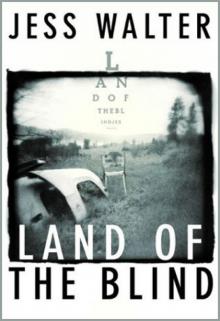 Land of the Blind
Land of the Blind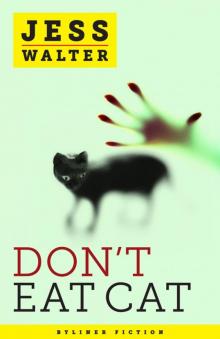 Don't Eat Cat
Don't Eat Cat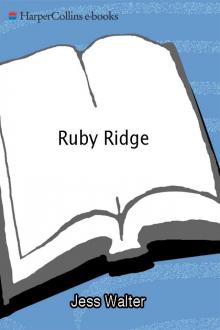 Ruby Ridge: The Truth and Tragedy of the Randy Weaver Family
Ruby Ridge: The Truth and Tragedy of the Randy Weaver Family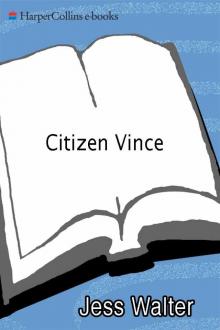 Citizen Vince
Citizen Vince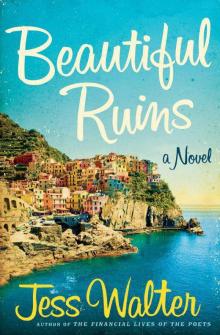 Beautiful Ruins
Beautiful Ruins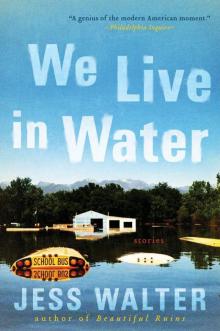 We Live in Water
We Live in Water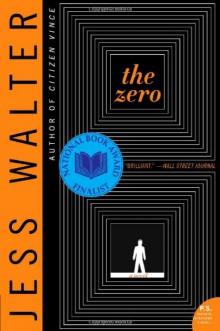 The Zero: A Novel
The Zero: A Novel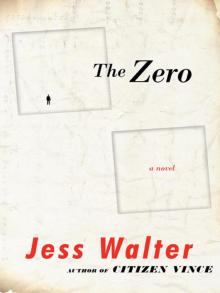 The Zero
The Zero The Cold Millions
The Cold Millions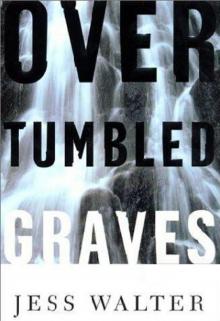 Over Tumbled Graves
Over Tumbled Graves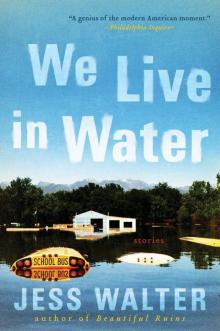 We Live in Water: Stories
We Live in Water: Stories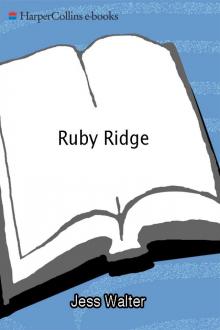 Ruby Ridge
Ruby Ridge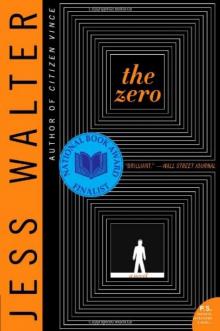 (2006) The Zero
(2006) The Zero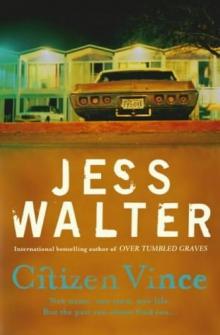 (2004) Citizen Vince
(2004) Citizen Vince